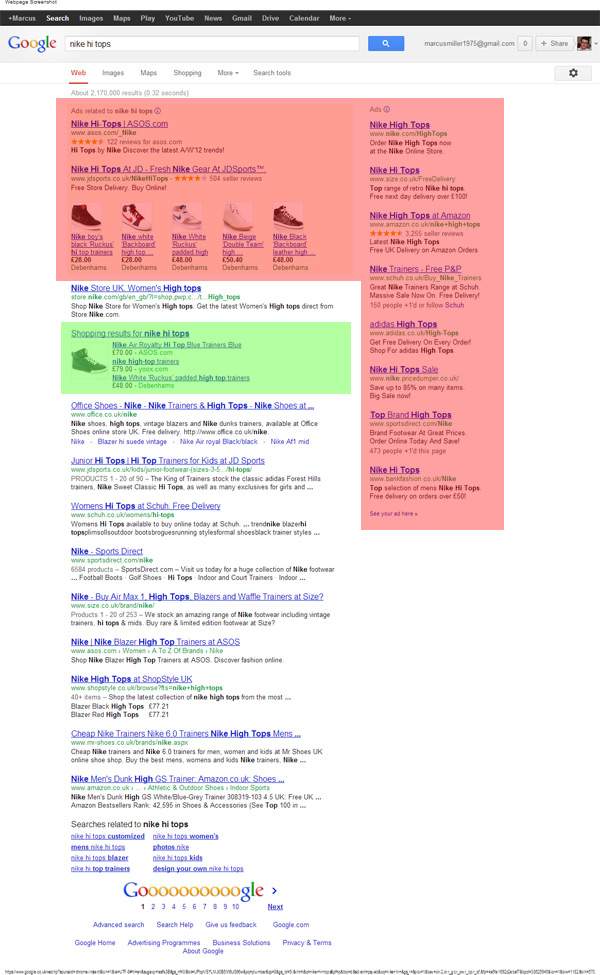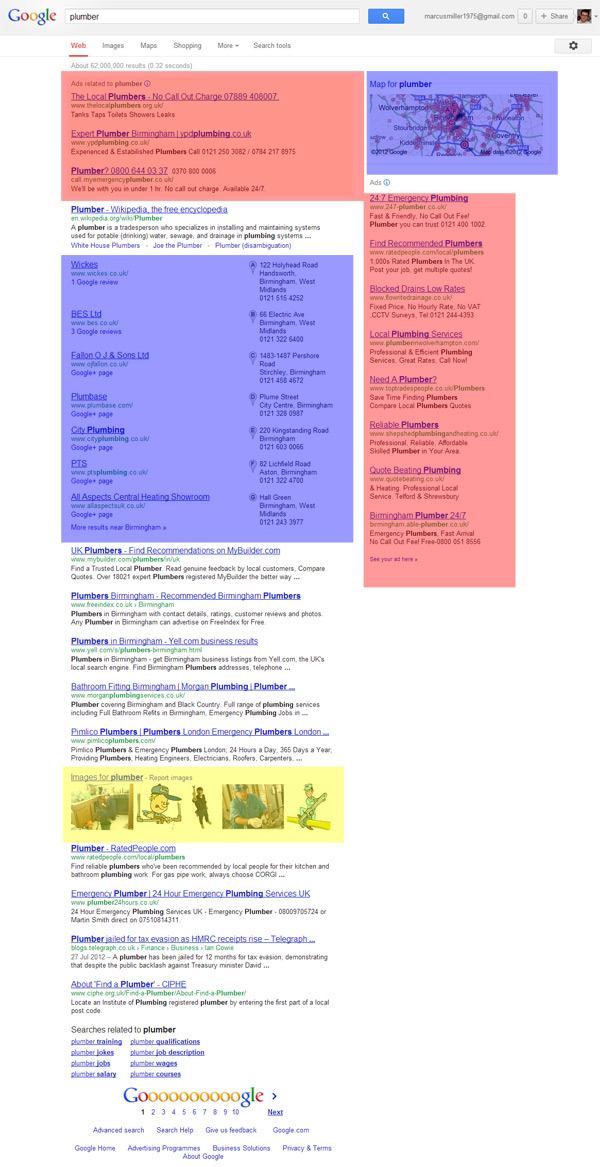Assuming that you already have a business, and some products or services to sell, then understanding the way your prospective customers search is the first and one of the most important jobs you will undertake in your search engine optimisation – in many cases, this is done so very poorly that it can undermine subsequent, higher cost SEO efforts such as link building and content development.
The remainder of this article is going to cover some of the concepts you need to understand to do effective keyword research and then the following article will look at the actual process of doing some simple yet solid keyword research.
How do your customers search?
The first stumbling block is to get inside the mind of your prospective customers. Who are they? How do they search? What information do they need to help them make a purchasing decision? How many of their searches are commercial – that is, ‘buy X’ rather than informational like ‘reviews of X’?
The important factor here is to concentrate on how your prospective customers search and give them what they are looking for. Don’t try anything sneaky by optimising for keywords that are not 100% relevant else they will just click away from the page and your efforts will be wasted.
Long Tail & Keyword Variations
When you are reviewing the keywords for your product or service, the chances are that there will be several variations on that keyword that you can optimise for on the same page.
So, if you are selling Nike Hi Tops then you may find that there are several keywords related to your product so we would see the ‘Nike hi tops’ keyword as the seed and expand upon it as follows:
- Nike hi tops
- Nike tops kids
- Nike hi top shoes
- Nike hi tops free delivery
- Nike hi top trainers
- men’s Nike hi tops
- Nike hi tops boys
- Nike hi tops girls
More Keywords = More Content
So, we may end up with the following groups of keywords each with their own page:
- Men’s
- Nike hi tops men’s
- Nike hi tops blokes
- Nike hi tops guys
- Ladies
- Nike hi tops women
- Nike hi top shoe women
- Nike hi tops ladies
- Kids
- Nike hi tops kids
- Nike hi tops children’s
- Nike junior hi tops
- Nike hi tops girls
- Nike hi tops boys
The point here is that we will always want to target variations on a phrase but will also want to use some common sense to make sure we break these down into separate pages when there are too many. Likewise, be careful not to go in the opposite direction and create a page for every single keyword as we may end up with lots of weak or very similar pages which can give a low-quality signal to the search engines and prevent pages from ranking.
Keyword research need not be technical or terrifying – think common sense, think people and how they search and getting it right for the search engines will fall into place naturally.
Understanding the Search Results
It is easy to consider Google as just returning 10 blue links but in reality, the search results are a somewhat complex mix of information from several different sources. These blended results can include news, images, video, products, articles & blog posts, local stores, standard results and much more. They will also (for any keywords that matter) include a bunch of adverts above, below and to the right of the search results.
So, before we bet the farm on a given keyword, it is prudent to ensure that the results that Google displays for that keyword match the kind of content we are hoping to rank for that page.
So, as an example, if we want to optimise a page on our site selling kids trainers for our keyword ‘Nike hi tops for kids’ then we want to make sure that when we search for that keyword the results feature shops selling kids shoes.
As a contrast to this, if we wanted to optimise our site for the keyword ‘plumber in Birmingham’ we may find it a wasted effort as the results for this keyword are primarily driven by adverts and results from Google Places (Your listing on Google Maps) so we may get a better return from focusing our effort on our local listing.
This is an important step and is why you should do a quick search against every potential keyword as the results will give you some valuable insight into what Google believes your keyword is about which in turn gives you insight into a users intent when they use that keyword.
Blended Results
The following image shows a blended search page for ‘Nike Hi Tops’ which I have added some highlighting too. The red areas are all adverts and the green area results pulled from Google’s shopping results.

This next image shows a set of results for the keyword ‘plumber in Birmingham’ and shows yet more results blended together. The areas highlighted in red are adverts, the areas in blue are from local results from Google Maps and there are some images shown in yellow.

Do some searching yourself for any terms that are important to you and your business and pay particular attention to the results. What do you see? Are your competitors there? Can you find any keywords where the results are poor? This may be an opportunity for you to squeeze into the result pages with a high-quality resource.
Now the research begins
Okay, if you have made it this far you should have a better understanding of keywords and we can now look at the actual process of researching keywords and make sure you are focusing on keywords that will bring you the right kind of visitors.
In the next article, we will take a look at how to research keywords including:
- Keyword research tools
- Understanding the quality of keywords
- Understanding keyword trends
- Keyword quality, difficulty and search volume
- Using keyword research for paid search adverts
- How to create a solid plan to optimise your site
- Tracking progress and measuring results
As ever, please share this article if you find it useful or drop me a question in the comments below.






